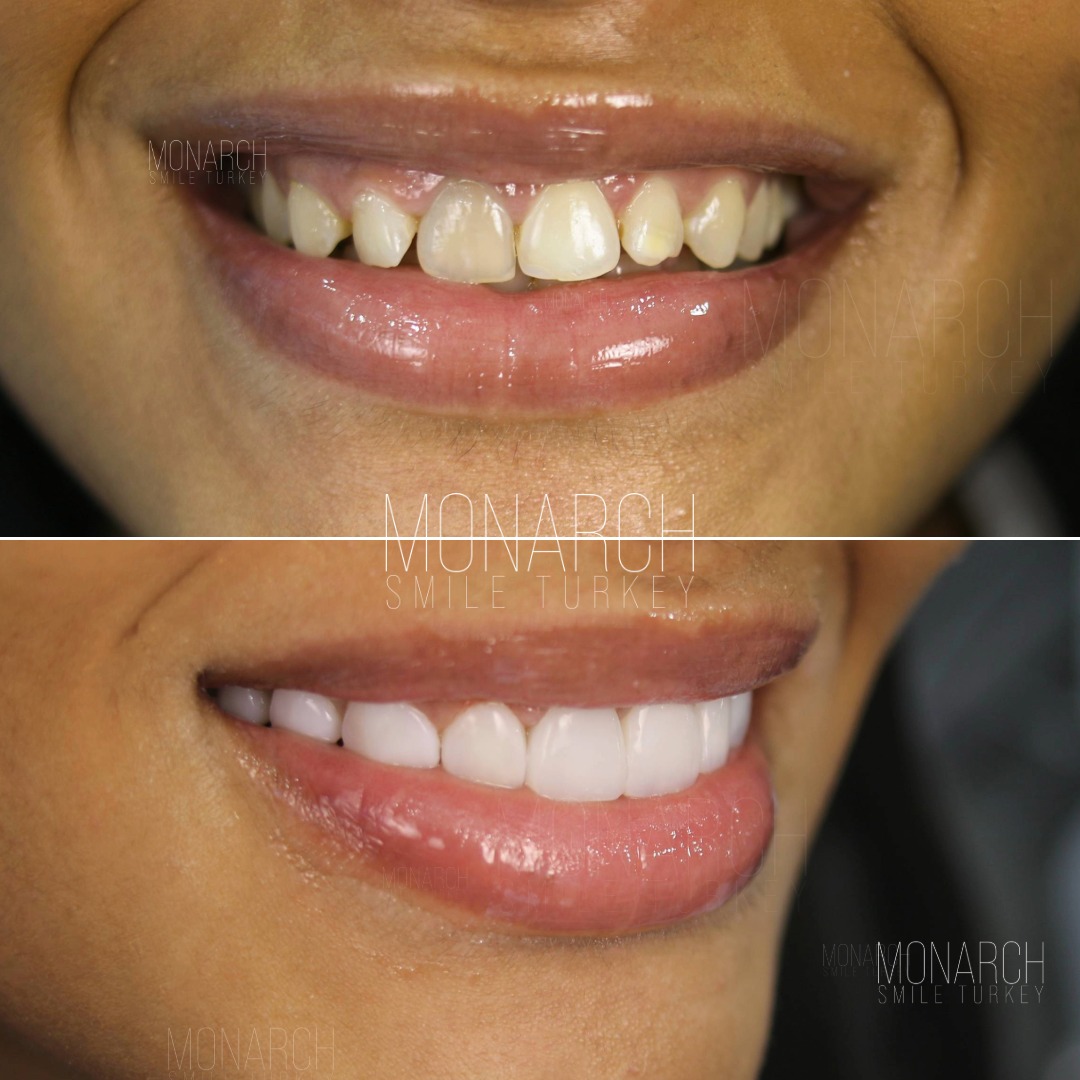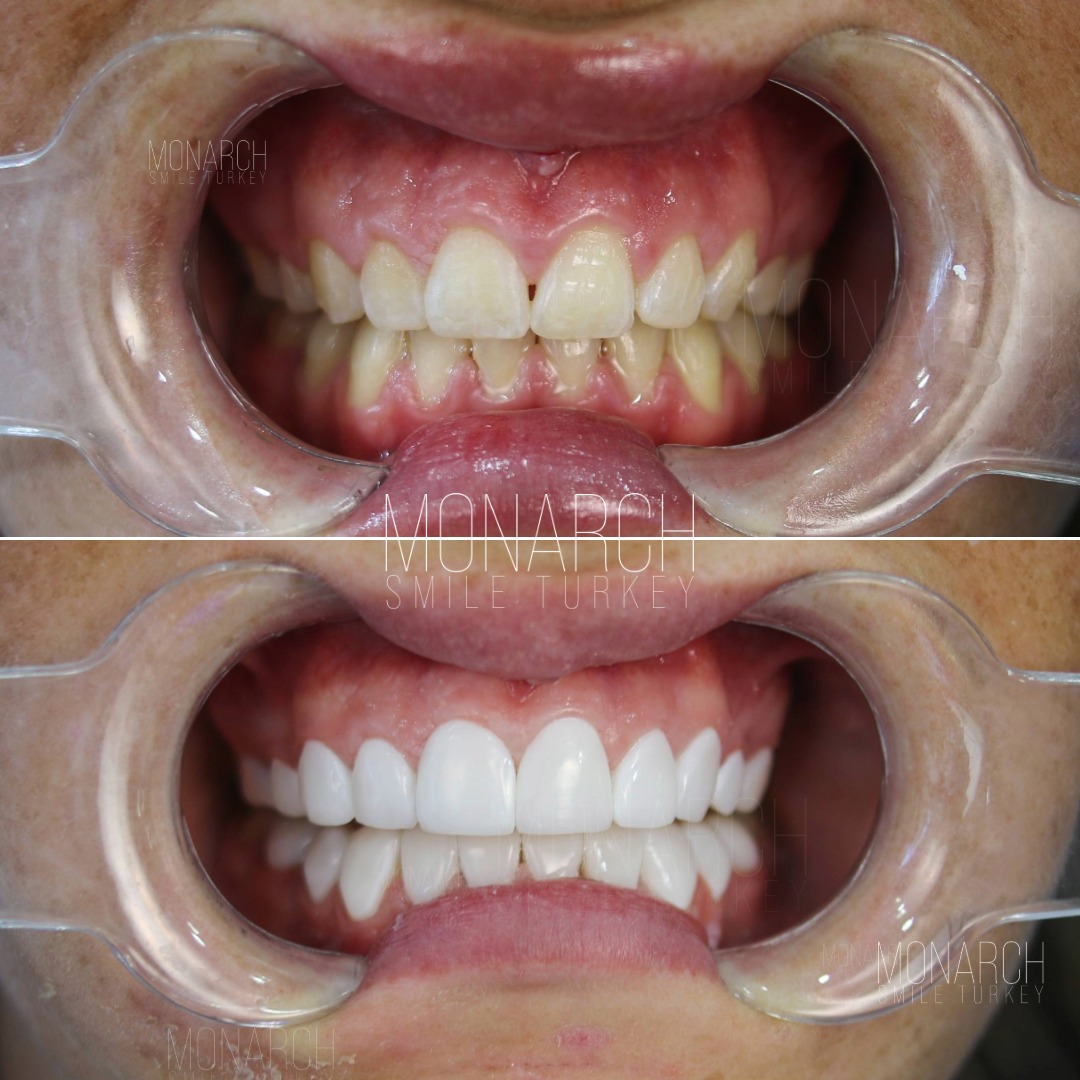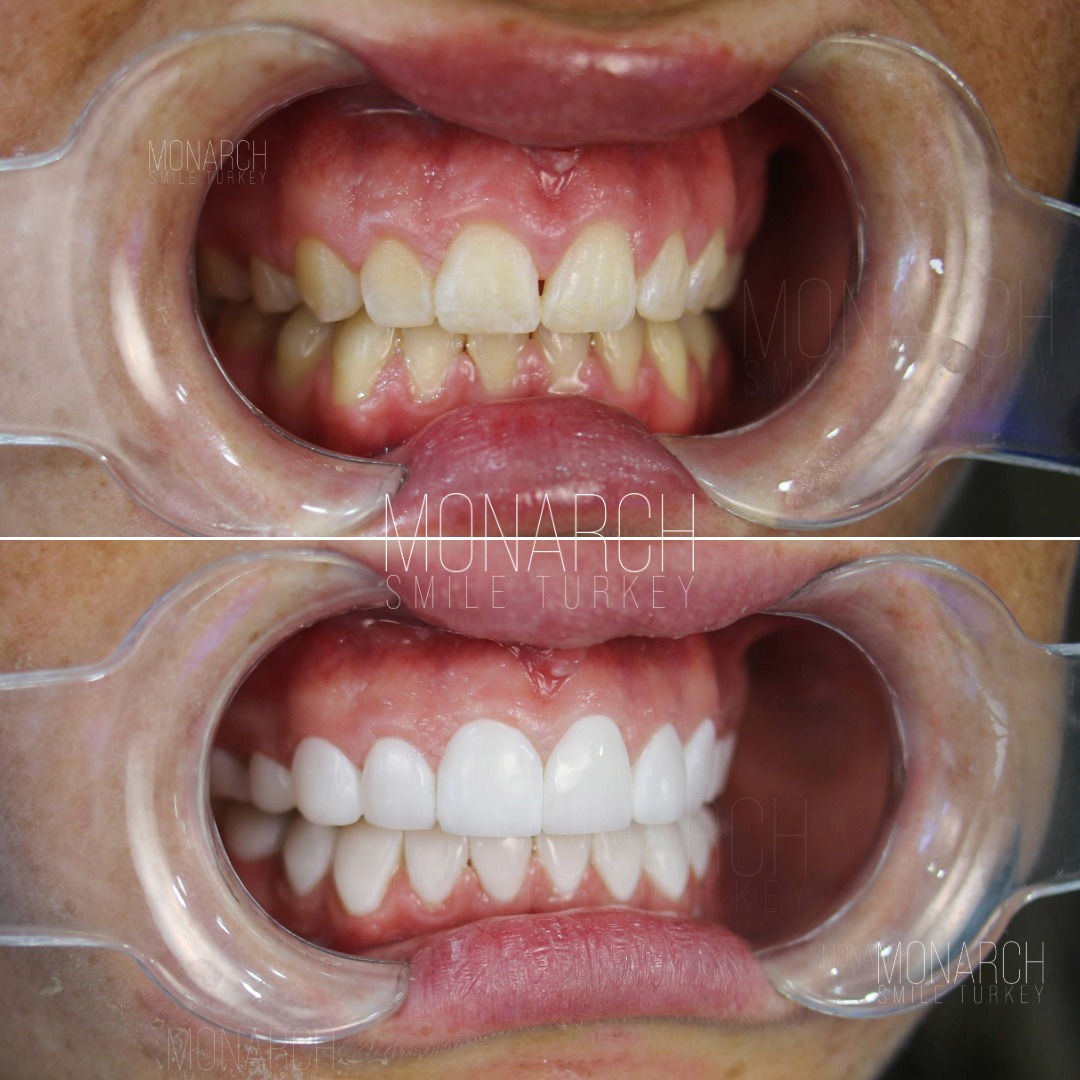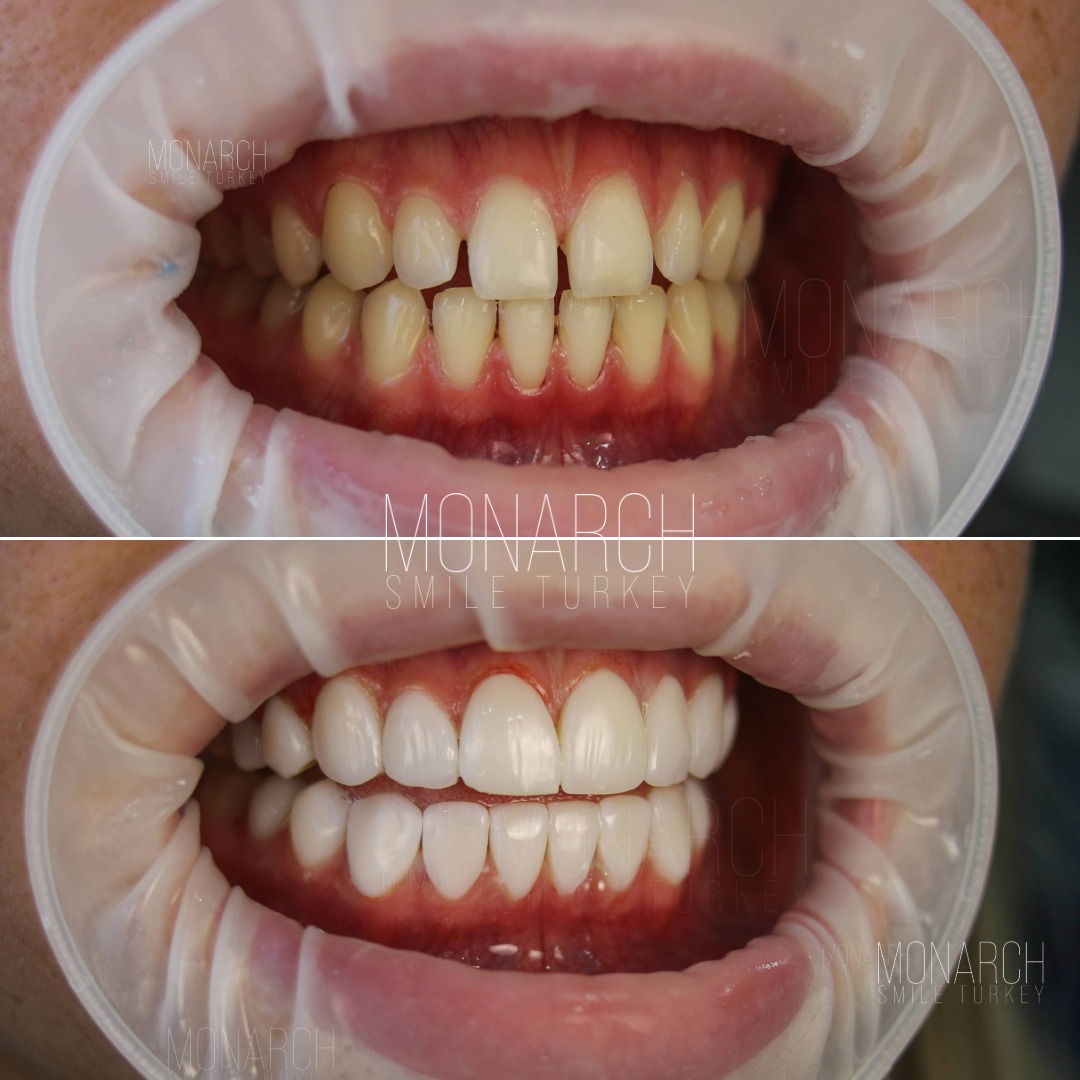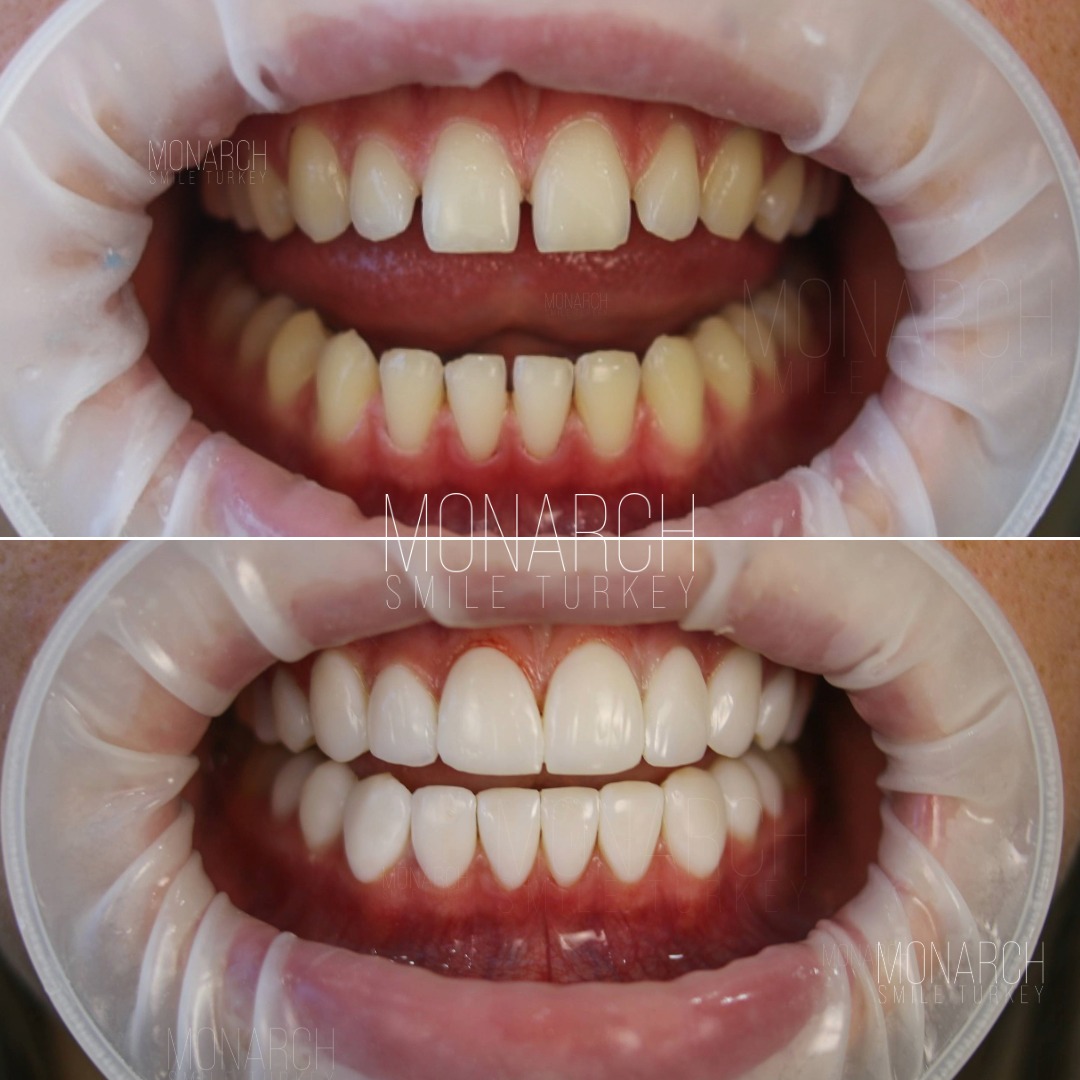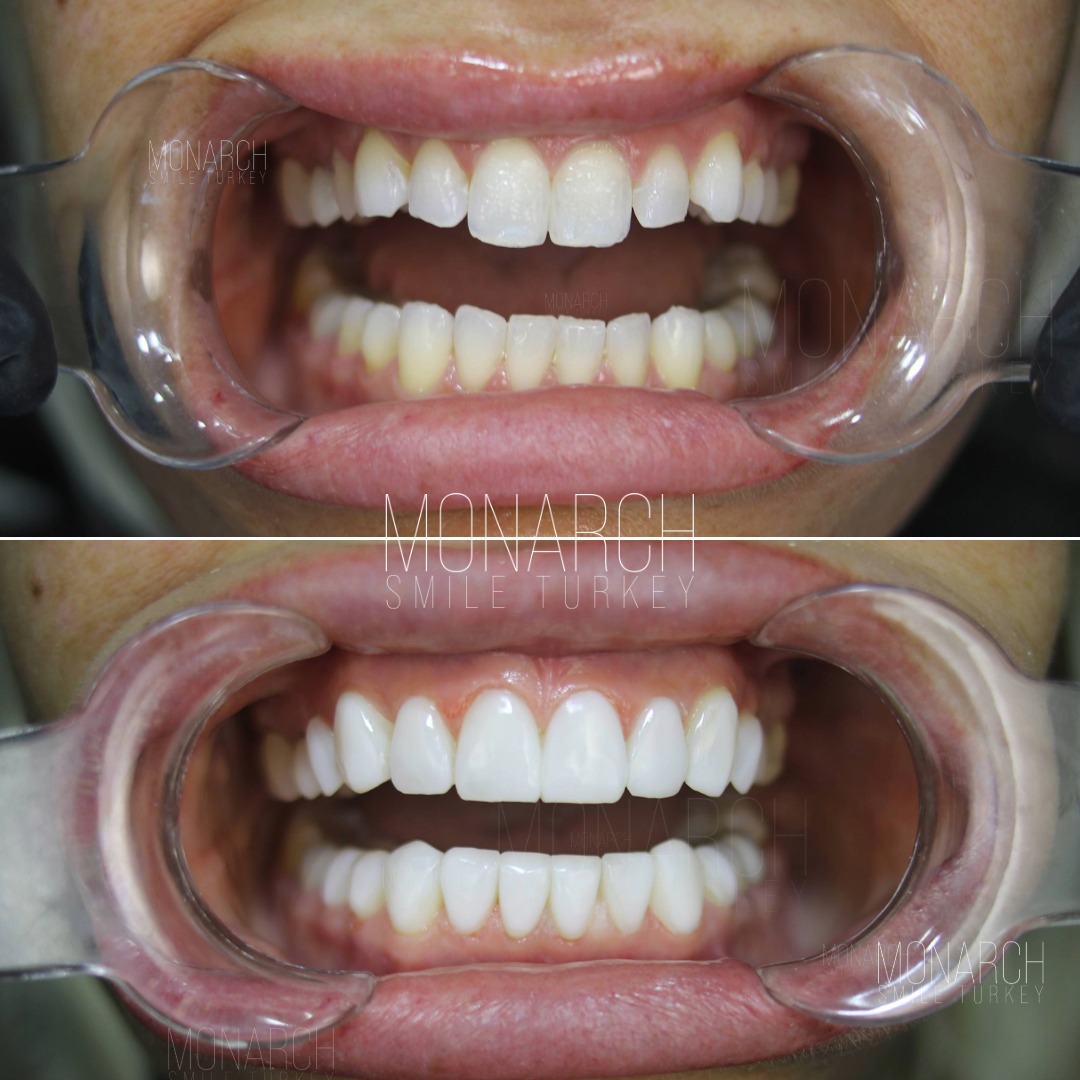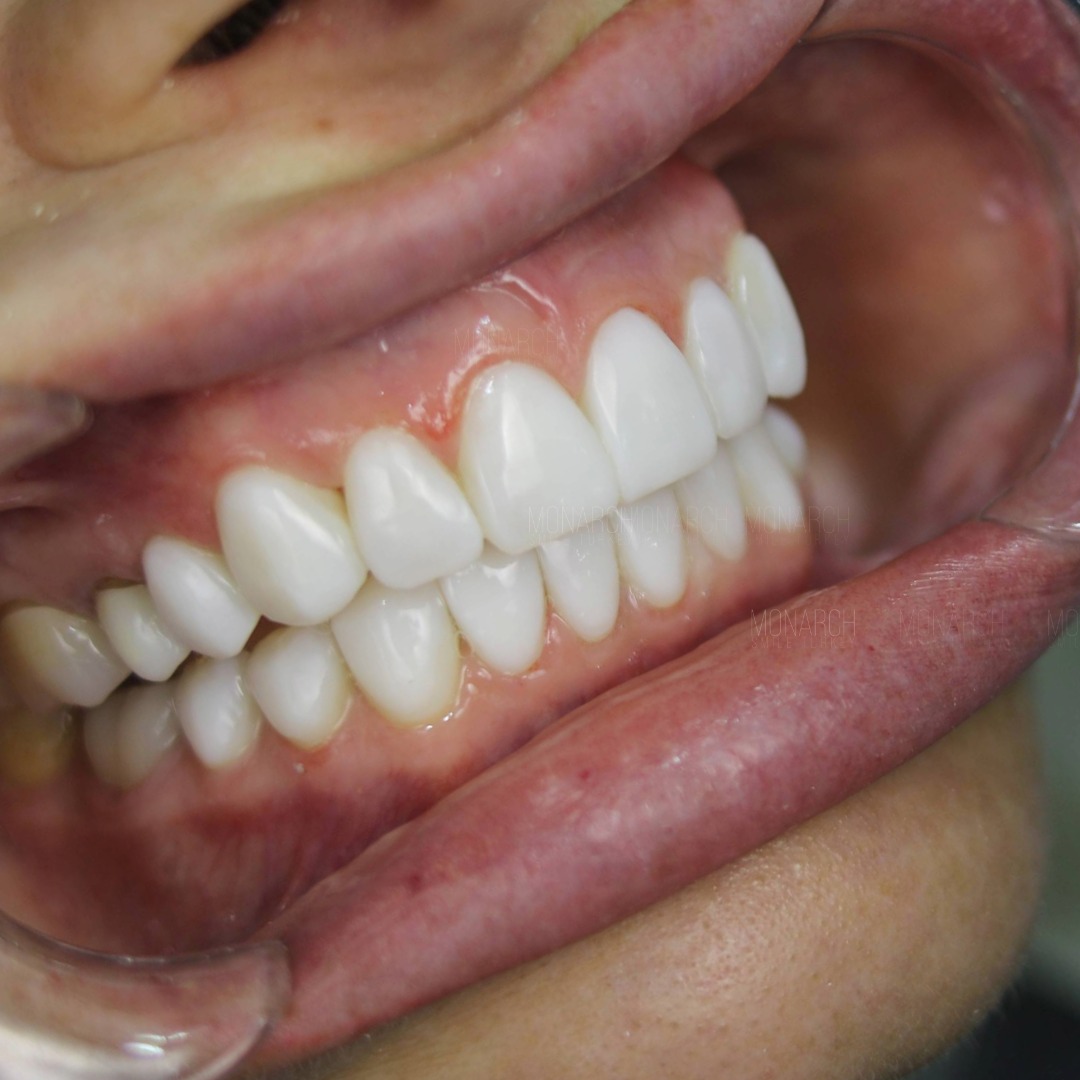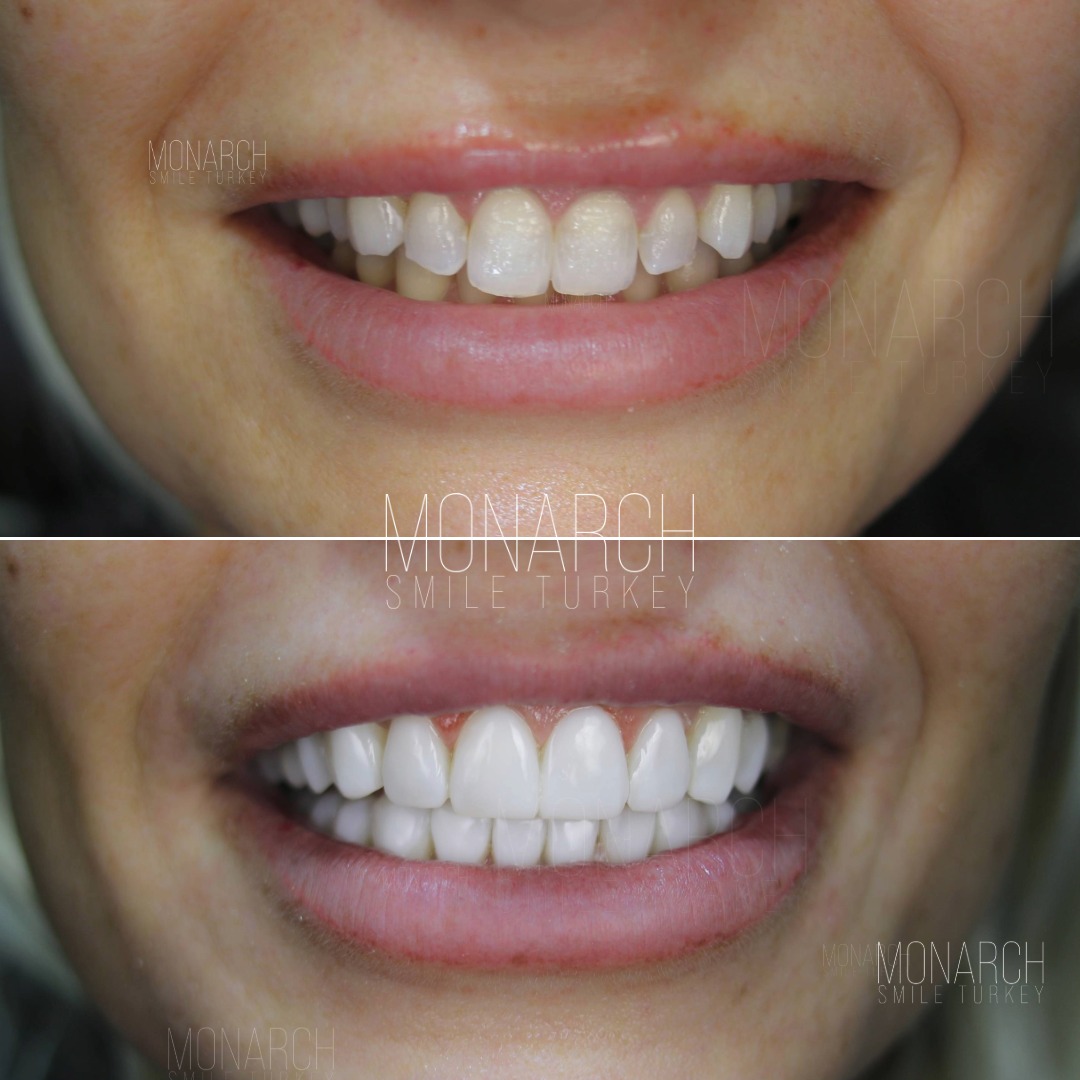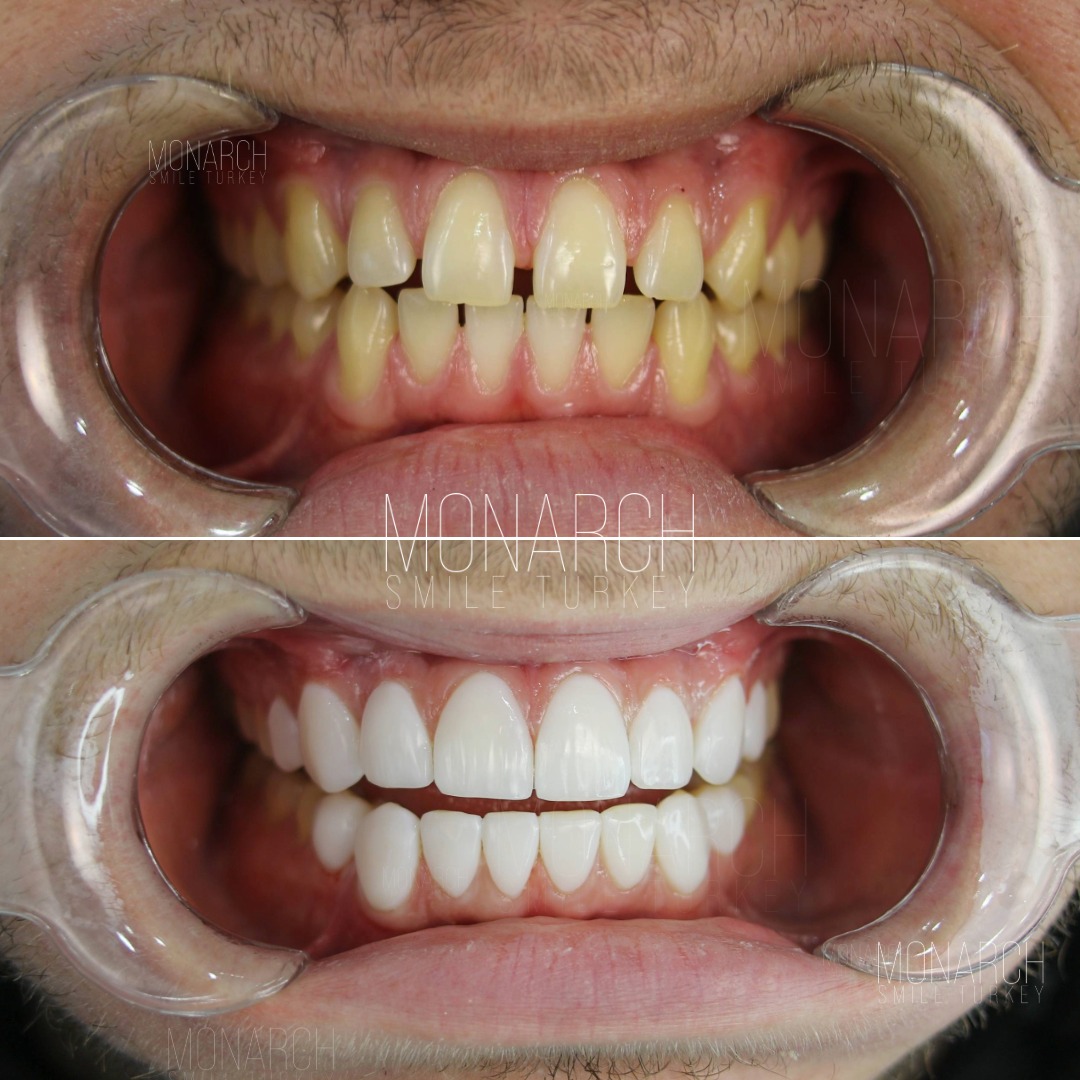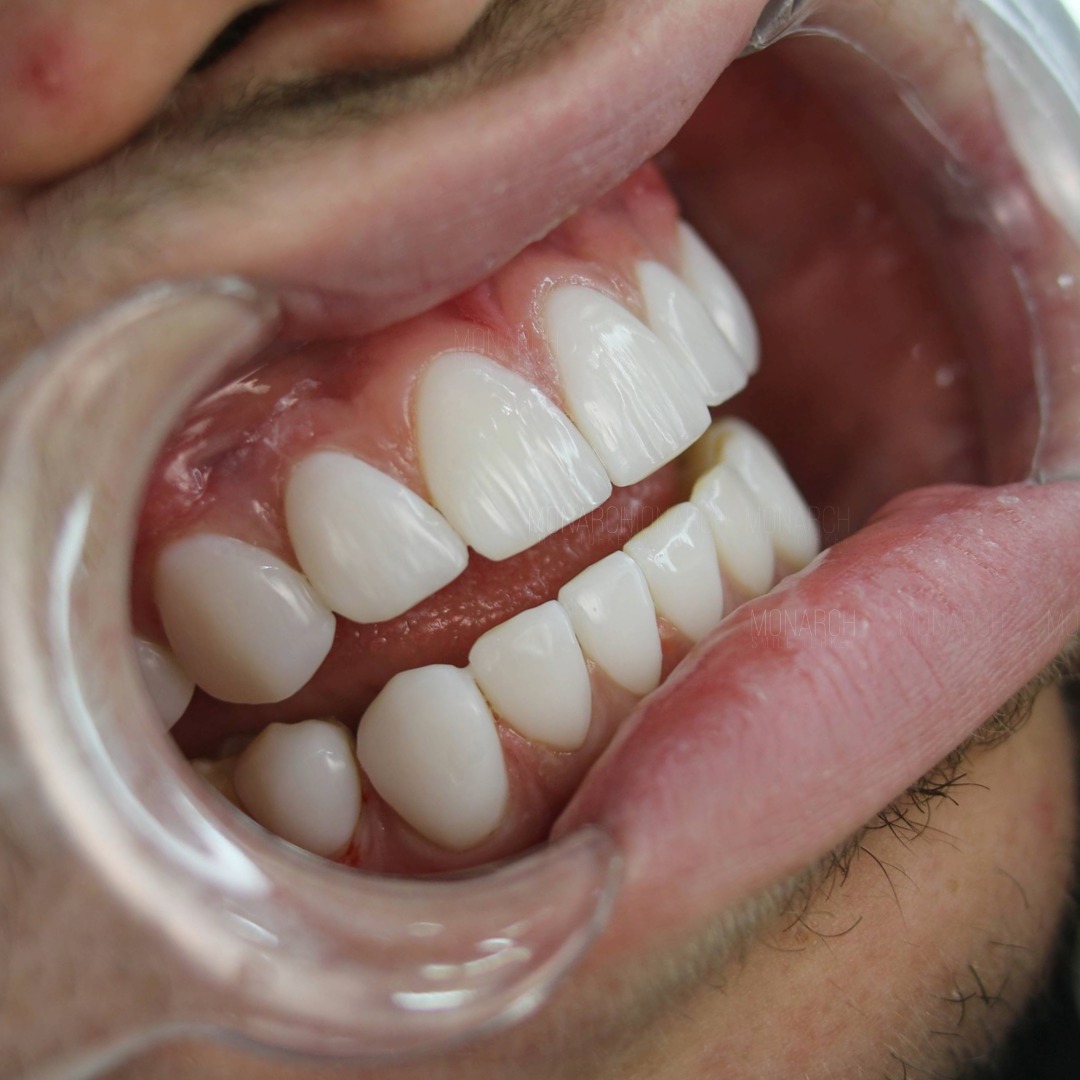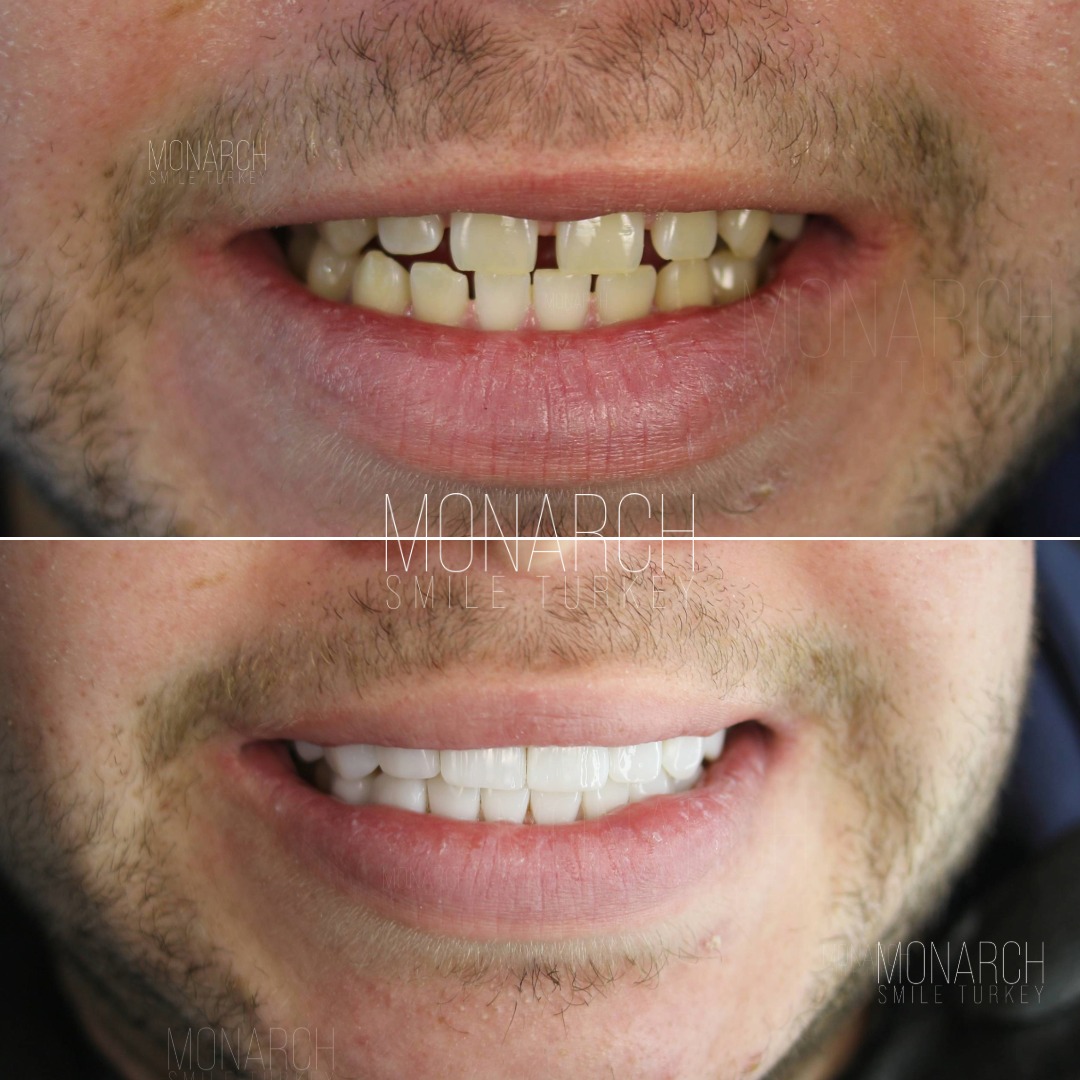What are veneers?
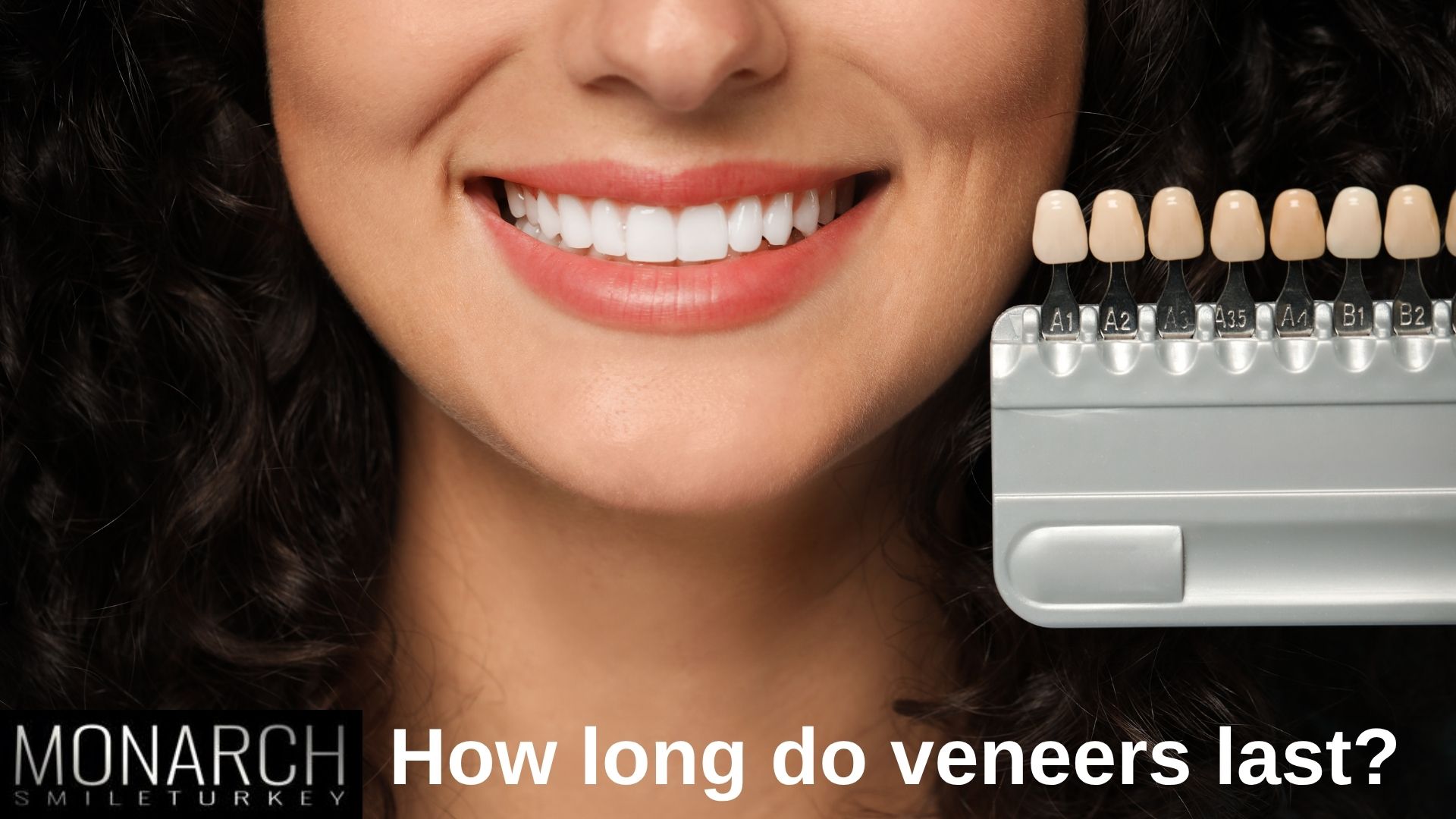
Veneers are thin shells placed on the front of your teeth to improve aesthetic look. They are usually made from porcelain or composite resin.
Veneers fix some problems like stains, chips, gaps or slightly crooked teeth.
Porcelain veneers last longer and resist stains better. Composite ones are more affordable and done faster.
Veneers are a popular choice for anyone who wants a cleaner, whiter, more even smile without braces or whitening.
Are veneers permanent?
No, but they're not temporary either. Veneers are semi-permanent. Once placed, they stay for years, but they won't last a lifetime.
Porcelain veneers usually last 10-15 years. Composites last around 5-7 years.
But here's the thing: how you treat them matters. Don't chew on pens, don't skip cleanings, and avoid grinding. These small habits decide how long your veneers stay flawless.
Think of them like high-quality phone cases. They protect and beautify and last long if you don't drop the phone every day.
So, while veneers don't last forever, they do offer long-term results. And with proper care, you might even forget when you got them.
What affects the durability of veneers?
Even the best veneers won't last forever! Their perfect look depends mostly on you. Some people enjoy their veneers for over 15 years or more, while others start seeing some problems much sooner. The difference? It's all in the details, how you care for them, what you eat, and even how you sleep.
These are the main factors that affect veneer durability:
Oral hygiene habits
Brushing twice a day and flossing keeps your gums healthy and prevents decay around the veneers. Poor hygiene shortens their lifespan fast.
Teeth grinding (bruxism)
Constant grinding or clenching puts pressure on your veneers. This pressure can cause cracks or even make them fall off. You should wear a night guard if you grind in your sleep.
Biting hard foods or objects
Chewing ice, biting your nails, or using your teeth to open packages? Big no. These habits weaken and chip veneers over time.
Type of veneer material
Porcelain is stronger and more stain resistant than composite. So naturally, it lasts longer, often 10-15 years or more with care.
Diet and stain-causing foods
Coffee, red wine, and smoking can stain composite veneers. Porcelain resists stains better, but not forever.
Skill of the dentist
A well-done veneer fits better, bonds stronger, and lasts longer. The dentist's experience matters more than most people think.
Regular dental check-ups
Seeing your dentist twice a year helps spot small problems before they become big ones, like loosened veneers or early decay.
How to make your veneers last longer?
Let's be honest! Veneers look amazing, but they're not bulletproof. Just like you wouldn't wear white trainers in the rain, you shouldn't treat veneers like natural teeth and expect them to last forever. But with a few simple habits, you can keep that perfect smile looking fresh for years.
So, what really makes the difference?
Brush gently every morning and night. Don't scrub like you're cleaning a frying pan veneers need a soft touch.
Flossing matters more than you think. It's not just about food bits; it keeps your gums healthy and protects the edges of your veneers.
And here's a quick one, ice cubes or fingernails? Don't bite them. Tiny cracks often start with tiny mistakes.
Are you prone to grinding your teeth during the night?
If yes, get a night guard. It's like a helmet for your smile.
Cut back on coffee, tea, and red wine if you want to avoid stains, especially with composite veneers. Porcelain holds up better, but still, nothing's invincible.
Furthermore, smoking? It's not just bad for your health, it dulls your smile fast.
Visit your dentist regularly. Even if everything looks fine, they can catch small issues before they turn into expensive problems.
And toothpaste? Use a gentle one. Whitening pastes can be too rough and slowly wear things down.
How long do composite veneers last?
Composite veneers typically last around 5 to 7 years. You can use them with proper care event longer. Brushing, avoiding hard foods, and regular check-ups are all key for longevity. But compared to porcelain, they're more likely to stain or chip over time.
How long do porcelain veneers last?
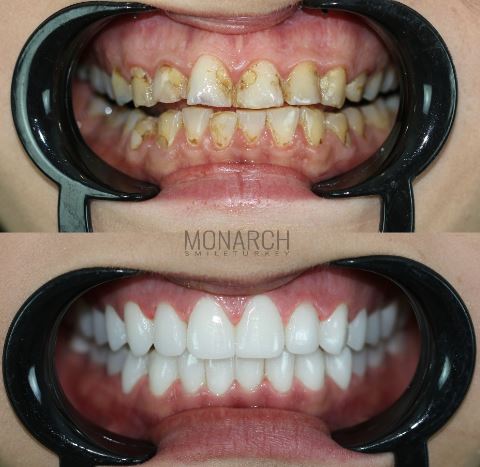
Porcelain veneers usually last 10 to 15 years. That's quite a stretch, especially if you take good care of them. The study analysed over 2,500 porcelain veneers and found that 53% survived without re-intervention at 10 years.
Why do they last longer than composite?
Because porcelain is stronger, smoother, and more stain-resistant. It doesn't soak up colour from coffee or red wine like composite does.
But wait, are they forever?
Not really. They're durable, but not unbreakable.
So, what makes them last? Brushing, flossing, not biting on hard things, and seeing your dentist twice a year. Simple stuff, but it works.
Briefly, porcelain veneers aren't permanent, but they stick around for a long time when you treat them right.
How long do emax veneers last?
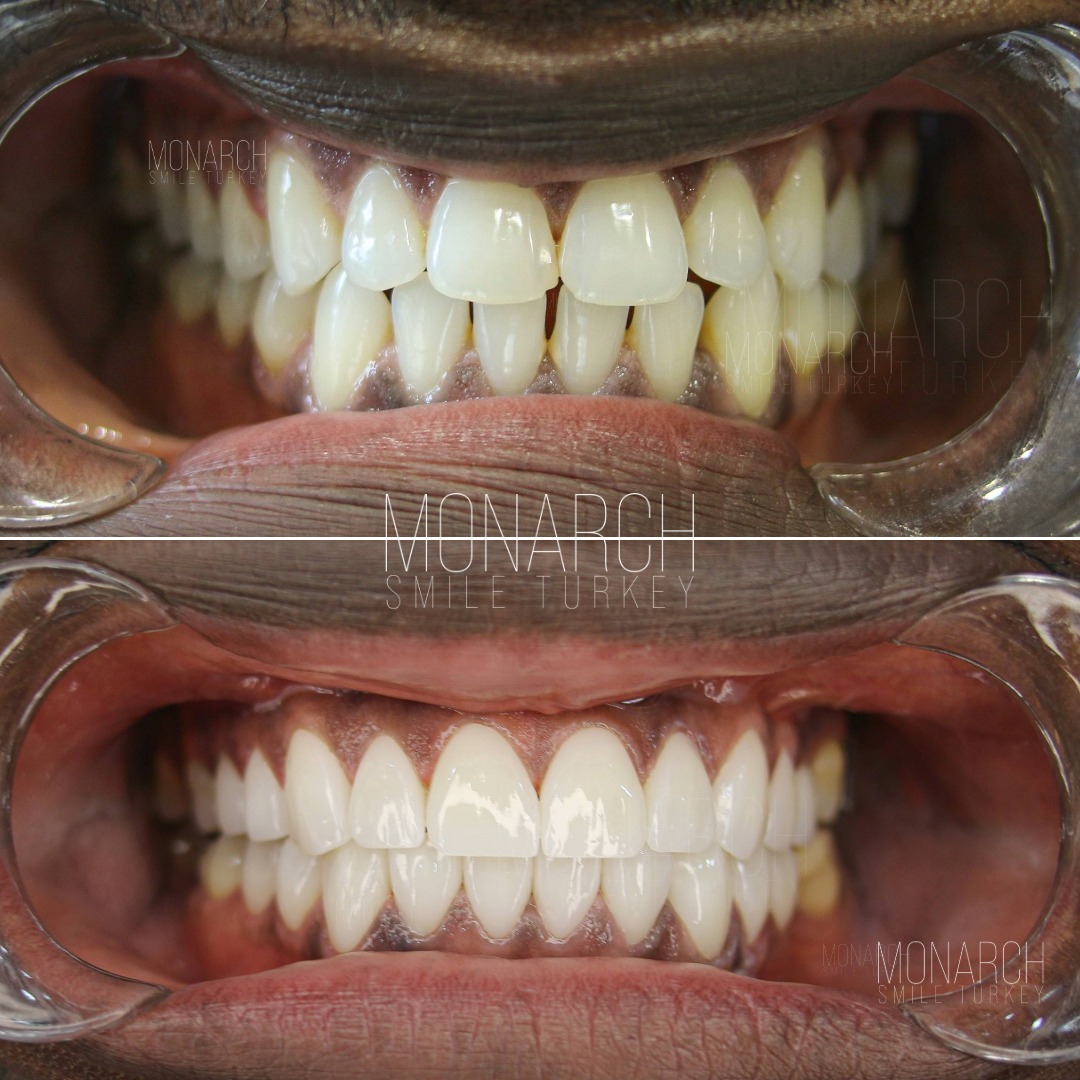
You can use emax veneers for about 10 to 15 years, sometimes even longer. They're made from lithium disilicate, not regular porcelain, which makes them both strong and beautifully translucent.
Do they chip easily?
Not really. Emax is tough, stronger than it looks. But like anything in your mouth, biting pens or opening packets can still cause damage.
They also resist stains well, so they stay bright without extra whitening.
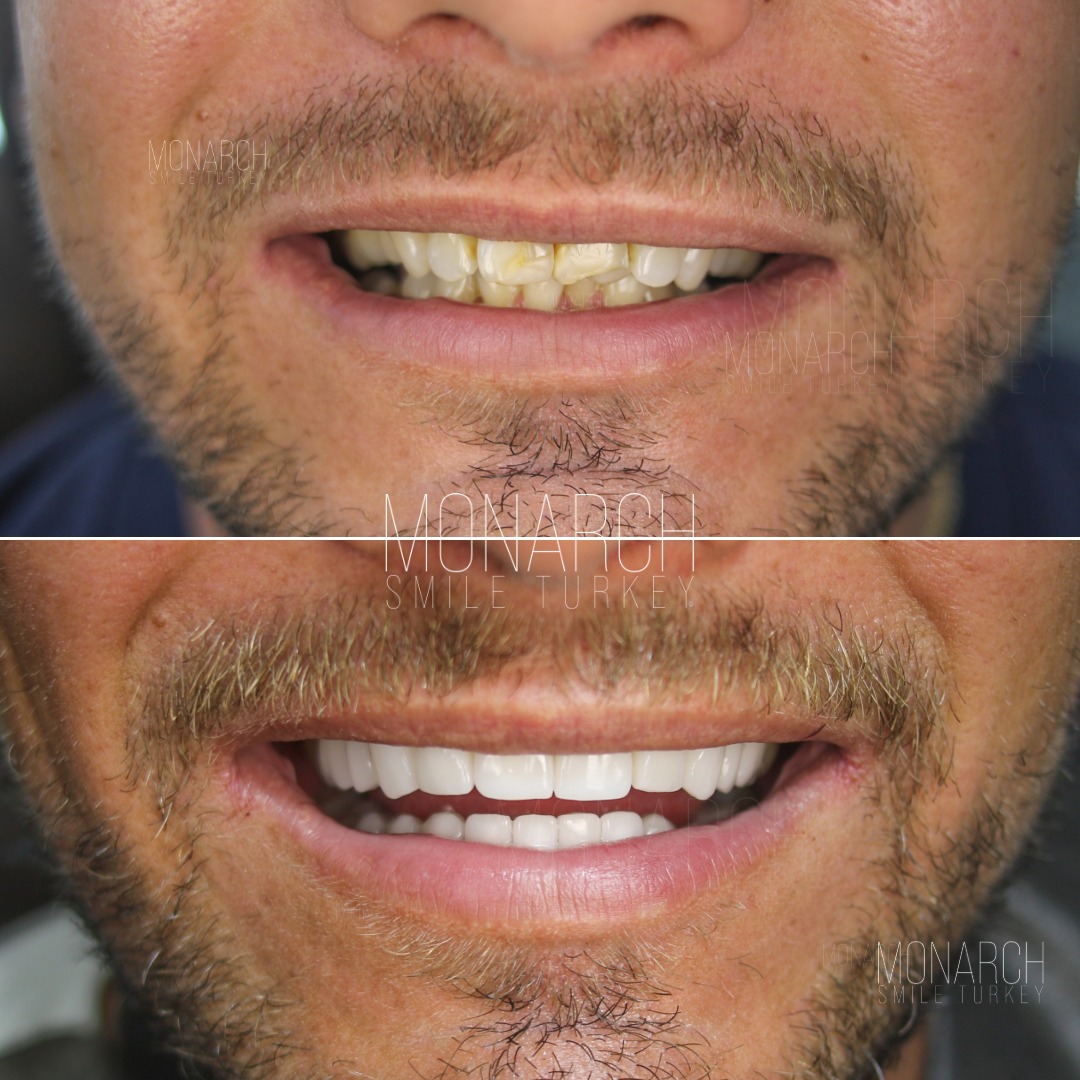
Emax veneers are long-lasting and ultra-natural looking. With good care, they're one of the best options out there for a strong and elegant smile.
How long do ceramic veneers last?
Ceramic veneers usually last around 10 to 12 years. They're not the strongest option out there, but they're still pretty reliable if you look after them well. The systematic review found estimated survival rates of 89% after 9 years and 95.5% after 10 years for ceramic laminate veneers.
But are they fragile? A little, yes. Ceramic can crack if you bite hard stuff or grind your teeth. So no chewing on ice or using your teeth as tools.
With good daily care and regular dental visits, they can easily stay in place for over a decade. They're not just about looks; they're built to last, as long as you don't push their limits.
How long do zirconia veneers last?
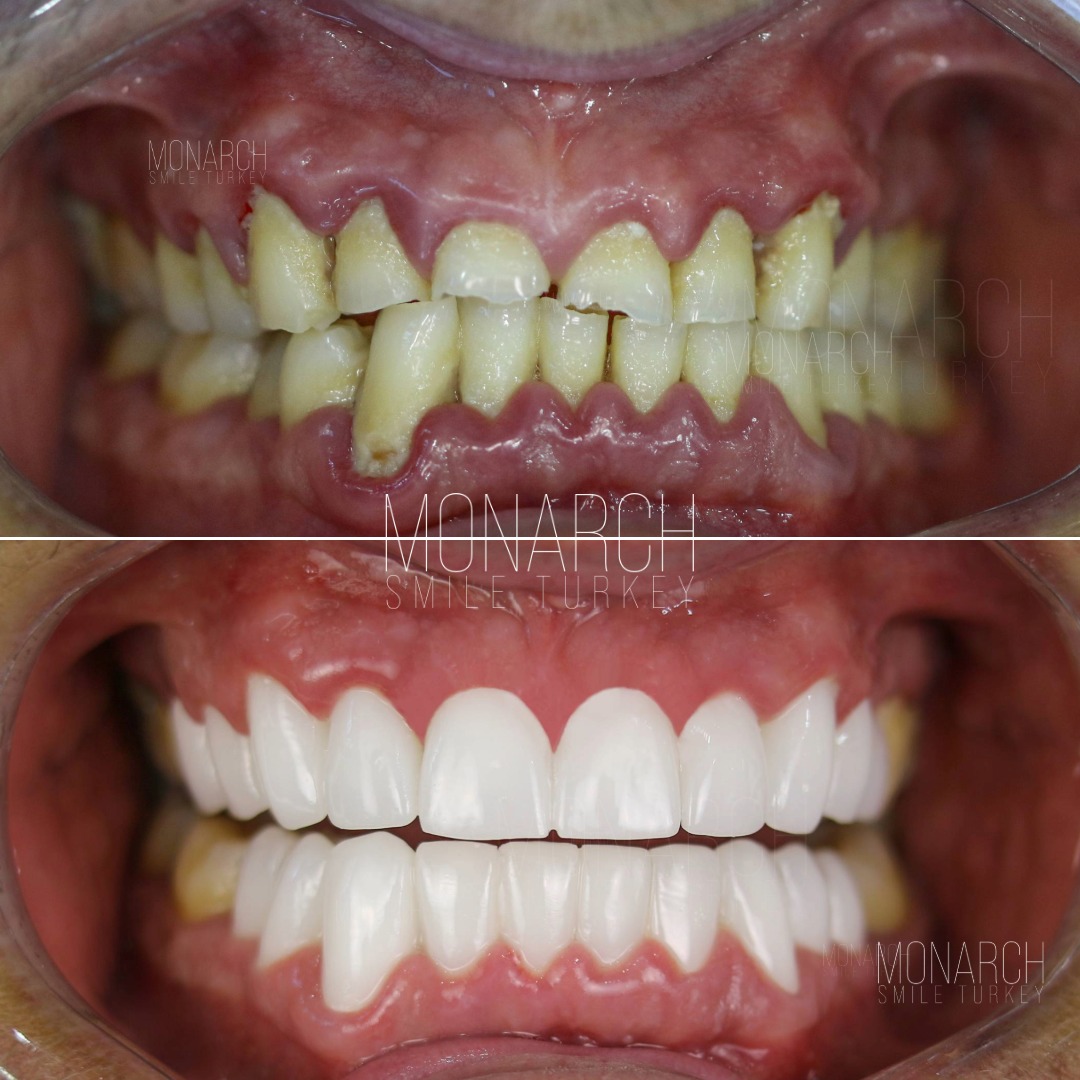
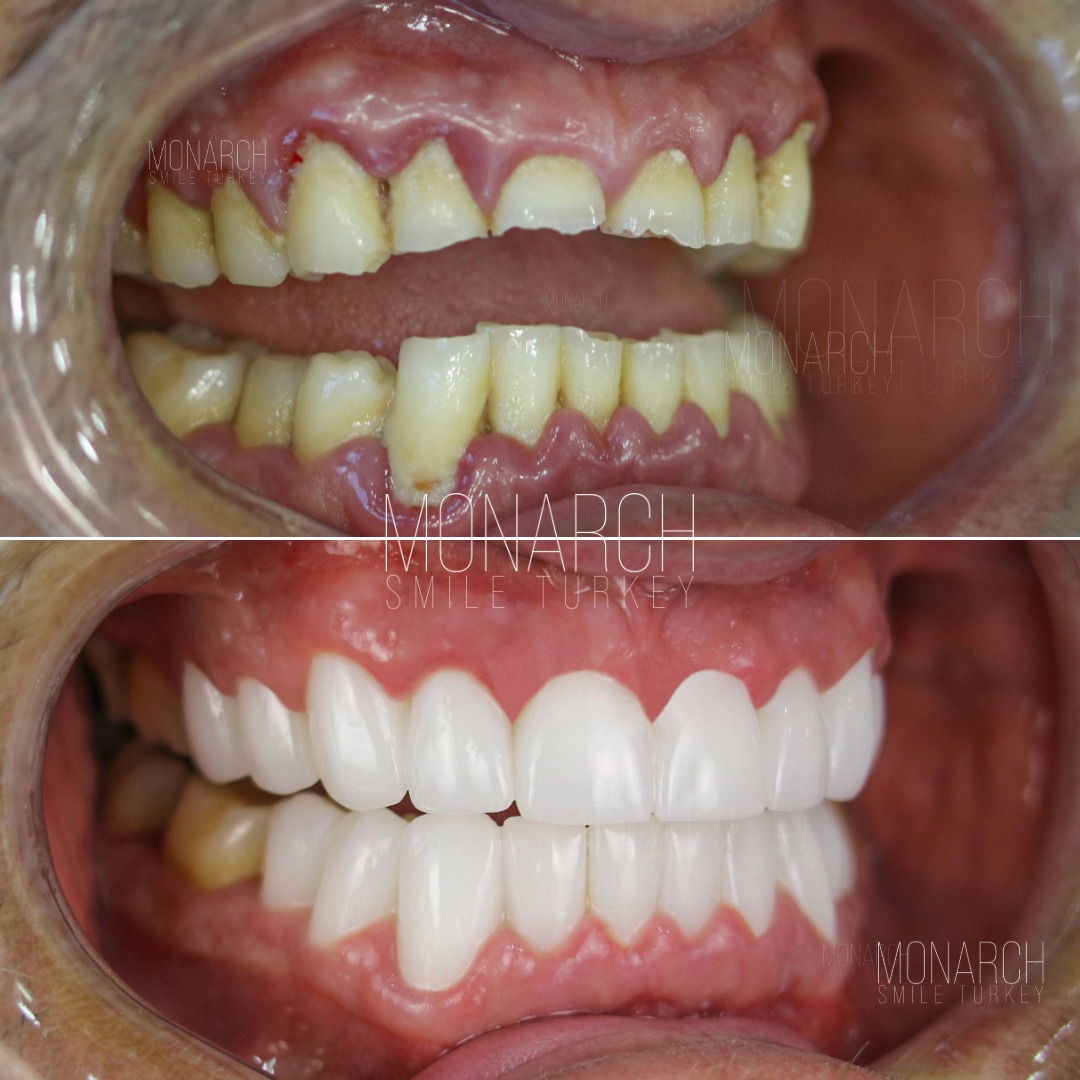
Zirconia veneers usually last 15 to 20 years. They're made from an incredibly strong material—stronger than porcelain or ceramic—which makes them highly resistant to cracks and chips.
They don't stain easily and are great for people who grind their teeth or need extra durability. With proper care, zirconia veneers can give you a long-lasting, confident smile without frequent replacements.
Porcelain vs composite veneers
|
Porcelain veneers |
Composite veneers |
|
10-15 years |
5-7 years |
|
Very high stain resistance |
Moderate stain resistance |
|
2 visits needed |
Same-day possible |
|
More natural look |
Slightly less shiny |
|
Harder to fix |
Easy to repair |
|
Affordable |
More affordable |
Porcelain veneers are like a luxury coat. They look stunning, last over 10 years, and don't stain easily. But they take more time and cost more. You usually need two visits, and once they're made, you can't really tweak them.
Composite veneers, on the other hand, are more like a quick outfit fix. Your dentist shapes them right on your teeth, done in a day. They're cheaper and easy to repair if something chips. But they don't stay as white, and you might need to replace them sooner, usually in 5 to 7 years.
Want something that lasts long and looks flawless?
Go with porcelain.
Need something fast and flexible?
Composite might suit you better.
Turkey Veneers before and after in Antalya
Frequently Asked Questions
What are the disadvantages of veneers?
- A small part of enamel is removed.
- They can't be reversed once done.
- Porcelain veneers are expensive.
- Composite veneers stain more easily.
- They may chip or crack over time.
- Not suitable for very damaged teeth.
- You may need replacements later.
Can you bite into an apple with veneers?
Yes, you can bite into an apple with veneers, especially if they're porcelain or zirconia. But it's safer to cut hard fruits into pieces to avoid pressure on the edges. Biting very hard foods often can shorten their lifespan.
Can you go back to normal teeth after veneers?
No, you can't fully go back. A thin layer of enamel is removed to place the veneers. Once done, you'll always need some kind of covering on those teeth.
Why is Turkey so affordable for veneers?
Because costs in Turkey are just lower, especially for clinics. Dentists don't pay sky-high rents or staff salaries like in the UK or US. That's a big reason why treatment prices drop without cutting quality.
If it's cheap, is it safe?
Yes, if you choose the right clinic. Many Turkish dentists are trained well and use the same top materials.
Furthermore, the currency difference plays a big role. What feels affordable to a UK patient still covers everything in Turkey dentist, lab, hotel, and even airport pickup.
Why Monarchsmile Turkey?
Monarch Smile Turkey is a dental clinic located in Antalya, Turkey, specialising in cosmetic dentistry services such as laminate and composite veneers. The clinic emphasises the importance of proper oral hygiene and provides guidance on maintaining veneers post-procedure. You can contact Dt. Ebru Yücel for more info about dental treatments.

